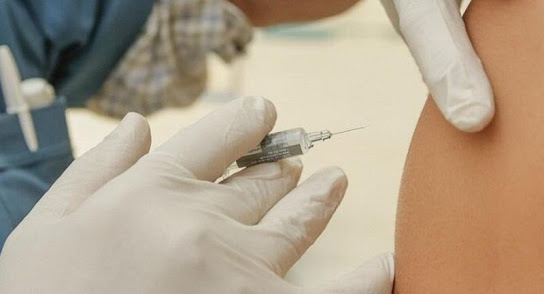A vaccine that stimulates the creation of a protein crucial to the skin's antioxidant network, could help people strengthen their defences against skin cancer. A study conducted by research team from Oregon State University's College of Pharmacy.
According to Arup Indra, professor of pharmaceutical sciences at OSU and the study's leader, ultraviolet radiation from the sun causes oxidative stress, which raises the risk of skin malignancies like melanoma.
According to him, a messenger RNA vaccination that stimulated the creation of the protein TR1 in skin cells, similar to the Moderna and Pfizer COVID-19 vaccines, could reduce the incidence of UV-induced malignancies and other skin diseases.
The findings of the study were published in the Journal of Investigative Dermatology, in which Arup and associates employed a mouse model to investigate TR1's function in skin cell health and stability.

According to the Centers for Disease Control and Prevention, skin cancer is the most frequent cancer in the United States. Melanoma, the worst form of skin cancer, is caused by malignant cells forming in skin cells called melanocytes, which generate the pigment melanin, which determines skin colour.
According to the CDC, UV radiation exposure is connected to the majority of occurrences of skin cancer. Exposure to the sun or tanning beds causes people to become tanned because the body produces melanin to protect the skin from burning.
"Despite attempts to raise public knowledge about melanoma warning signs and the dangers of excessive UV exposure, melanoma incidence continues to climb," Indra stated. Researchers have been looking at dietary antioxidants as a possible source of low-cost, low-risk cancer prevention agents for more than 40 years, but they haven't always performed well in clinical trials, and in some cases have even been harmful, necessitating the need to try to intervene with new chemoprevention agents like an mRNA vaccine.
The enzyme thioredoxin reductase 1 (TR1) is short for thioredoxin reductase 1. Reductase is an enzyme that promotes a reduction process, in which a chemical species receives electrons, usually as part of a "redox" reaction, in which another species loses electrons.
TR1 is an important component of the antioxidant system in melanocytes. Antioxidants guard against reactive oxygen species, or ROS, which are on the lookout for electrons in cells and can harm DNA.
Melanocytes are under attack from ROS not only from the sun, but also from the pigment-making process, melanogenesis, which produces ROS. Antioxidants prevent oxidation by catalysing the transfer of electrons, effectively turning off a chain reaction that would otherwise harm numerous molecules in melanocytes and other cells.
RNA vaccines operate by commanding cells to produce a certain protein. It's a harmless portion of the virus' spike protein that causes an immune response in coronavirus vaccinations; it'd be TR1 in the suggested melanoma vaccine.
"Following the uptake of the mRNA into the cell and the activation of the cell's machinery, the cell should have a high antioxidant level and be able to deal with oxidative stress and DNA damage caused by ultraviolet light," Indra added. "People who are at a higher risk of skin cancer, such as those who work outside in hot climes, should get vaccinated once a year."
Researchers noticed greater oxidative stress and DNA damage without TR1 despite the presence of other antioxidant proteins, so a vaccination for TR1 alone, with no other antioxidants, might be sufficient, he added. However, other antioxidants such as glutathione peroxidase and superoxide dismutase may also play a role, according to Indra.
He stated that "everything needs to be evaluated and validated in preclinical models." "We need to develop an mRNA vaccine, distribute it locally or systematically, and track how it affects the body's defences. Clearly, we're only scratching the surface, but the possibilities for avoiding disease development, including cancer, by modifying the body's antioxidant system are exciting."






0 Comments
Feedback will be Appreciated